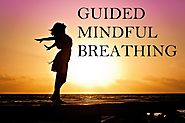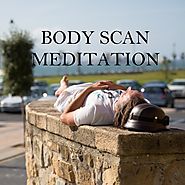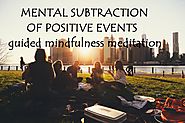-
About
- About Listly
- Community & Support
- Howto
- Chrome Extension
- Bookmarklet
- WordPress Plugin
- Listly Premium
- Privacy
- Terms
- DMCA Copyright
- © 2010-2025 Boomy Labs

 Deniz Yalım
Deniz Yalım
Listly by Deniz Yalım
These guided meditations and mindfulness meditation practices are designed to improve the quality of life.
Billions of people today suffer from chronic stress, pain and tension. Our modern life has caused us to experience an epidemic of burn out, chronic fatigue and stress related illnesses.
More than ever we are in need of integrating activities into our lives that bring us to a state of balance and peace.
Meditation is a focused mental activity that is proven to bring us to a state of balance where we can deeply relax and lead more joyful and productive lives.
There are many forms of meditation. One of the easiest ways to learn how to focus the mind is to listen to guided meditations. Spoken word guidance with relaxing nature sounds and music brings us to a state of calm alertness so we may lead a healthier life.
Get Your Gift: Free Handbooks for Life, Happiness & Productivity
Get now free Peace Starter Meditation on Google Play

15 minutes daily for at least a week (though evidence suggests that mindfulness increases the more you practice it).
The purpose of this exercise is to simply notice, accept and be aware of your breath – it is not about relaxation or stress reduction, although this may well occur. Breathing is something we all do – if you have a pulse then you breathe. Your body knows how to do this; it has done it since birth. This is simply about breathing mindfully. Breathing is something you carry with you everywhere; you are just not usually aware of it.
WHY YOU SHOULD TRY IT
Stress, anger, and anxiety can impair not only our health but our judgment and skills of attention. Fortunately, research suggests an effective way to deal with these difficult feelings: the practice of "mindfulness,” the ability to pay careful attention to what you're thinking, feeling, and sensing in the present moment without judging those thoughts and feelings as good or bad. Countless studies link mindfulness to better health, lower anxiety, and greater resilience to stress.
But how do you cultivate mindfulness? A basic method is to focus your attention on your own breathing—a practice called, quite simply, "mindful breathing." After setting aside time to practice mindful breathing, you should find it easier to focus attention on your breath in your daily life—an important skill to help you deal with stress, anxiety, and negative emotions, cool yourself down when your temper flares, and sharpen your skills of concentration.
Mindfulness gives people distance from their thoughts and feelings, which can help them tolerate and work through unpleasant feelings rather than becoming overwhelmed by them. Mindful breathing in particular is helpful because it gives people an anchor--their breath--on which they can focus when they find themselves carried away by a stressful thought. Mindful breathing also helps people stay “present” in the moment, rather than being distracted by regrets in the past or worries about the future.

Peace Starter Meditation (free at Google Play)
Three to six days per week for four weeks. Research suggests that people who practice the body scan for longer reap more benefits from this practice.
The purpose of this body scan mindfulness exercise is simply to notice your body. It is not necessarily about relaxing your body, however this may occur as a kind of side effect. It is simply about being aware of your body, in this present moment.
Usually, our response to bodily pain or discomfort is to distract ourselves or to try and numb the pain. In this exercise you will accept and notice with gentle curiosity your body in its comfort and discomfort.

Get Your Gift: Free Handbooks for Life, Happiness & Productivity found at https://bayart.org/handbook-for-your-life/
We often treat thoughts as if they were facts. You may have the thought “I am no good at this,” or “He’s is a jerk,” or “Nobody understand me,” or even “I am brilliant!” Does thinking it make it so?
When we have a thought many times, over and over, it can condense into a belief. So a belief is a thought, or a number of connected thoughts, that we have a lot of the time. Beliefs are then quite often taken as facts.
For example: “The world is flat.” Enough people had that thought, or held the assumption, often enough for it to be assumed to be a fact for centuries!
When we start to pay attention to our thoughts, with a gentle curiosity, then we start to think about our thinking. We can then move away from believing that the thought is a fact.
Then there’s this: If the thought does have evidence pointing to it being a fact, ask yourself a different question. “What does buying into this thought do to me? Does it help? Is it working?”
If the answer is no, then simply move on from the thought. Choose not to get caught up in it.

An exercise in noticing the world around you and how it comes into contact with your body, and your breathing, mindfulness of external world and breath.

Click to Get Your Gift: Free Handbooks for Life, Happiness & Productivity
Feelings are often labelled as positive (happy, confident, joyful, brave, etc) or negative (sad, scared, hurt, angry etc). In mindfulness practice, feelings are not good or bad; they just are what they are – emotions that might be comfortable or uncomfortable, easy or difficult. We are often taught to feel that the experience of some feelings is wrong – “You mustn’t feel like that,” “Be positive,” “Don’t be sad/scared/hurt” – and that the experience of some feelings is right – “Be happy/brave,” “Lighten up,” “Move on, get over it.” This exercise is simply about noticing whatever you are feeling, at the moment you are feeling it, with a gentle, non-judgemental acceptance and curiosity.

Mental subtraction counteracts our tendency to take positive events in our lives as givens. When we consider the circumstances that led to an event, we may be surprised by how unlikely that event actually was, and how lucky we were that it happened as it did. While it can be painful to think about not having experienced an important positive event, this scenario provides a negative contrast against which our current situation can be favorably compared.

Practicing kindness is one of the most direct routes to happiness: Research suggests that kind people tend to be more satisfied with their relationships and with their lives in general. We all have a natural capacity for kindness, but sometimes we don’t take steps to nurture and express this capacity as much as we could.
